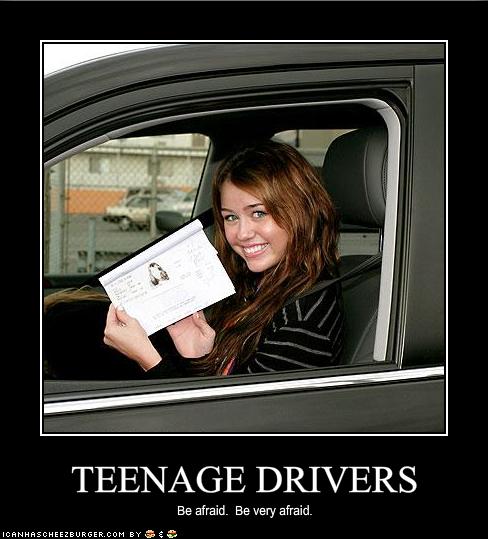New Law Aims To Reduce North Carolina Car Accidents Involving Teen Drivers
Author: Auger Law | January 11th, 2012
 In effort to reduce the number of North Carolina car accidents that involve newly licensed teenage drivers, a new law recently went into effect which requires that a driving log with evidence of at least 60 hours of driving be presented by teens between the ages of 16 and 18 when applying for their provisional license.
In effort to reduce the number of North Carolina car accidents that involve newly licensed teenage drivers, a new law recently went into effect which requires that a driving log with evidence of at least 60 hours of driving be presented by teens between the ages of 16 and 18 when applying for their provisional license.
The new provision requires that all teens who obtain their limited learner’s permit on or after October 1, 2011, maintain a logbook detailing at least 60 hours driving, with at least 10 of those hours being nighttime driving. The supervising driver is required to sign the log, and the log book must be presented to the Division of Motor Vehicles at the time of the applicants road test. But beware-if the clerk thinks you have falsified your log book, you will not be permitted to take your road test, and will have another 6 months in which to complete a legitimate logbook.
Additionally, teens between the ages 16 and 18 who obtain their limited provisional license on or after October 1, 2011 will be required to keep a logbook detailing at least 12 hours, with at least 6 of those hours being at night, and must be signed by the supervising driver for the nighttime hours. As with the limited provisional license requirements, if the Division of Motor Vehicle thinks your logbook has been falsified, you will not be eligible for your full provisional license for another 6 months, during which you must complete a legitimate logbook.
These changes come on the heels of a study conducted by the AAA Foundation for Traffic Safety which found that newly licensed teens have a 50% greater likelihood of crashing during the first month of having a drivers license than they are following an entire year of solo driving experience.
The study identified specific areas in which parents can improve the safety of their teen driver:
-Continue practicing skills with their teen, and introduce them to more difficult driving conditions, such as heavy traffic and bad weather.
-Limit passengers. The risk of a teen driver crashing multiplies with additional teenage passengers.
-Limit driving at night. For a newly licensed, inexperienced teen driver, the decreased visibility at night increases risk of wrecking.
As the parents of two teenagers that will soon be getting their provisional drivers licenses, the Charlotte car accident lawyers are acutely aware of the dangers teenage drivers face, and urge you to stay involved with teaching your teen safe driving skills, even after they obtain their license.














